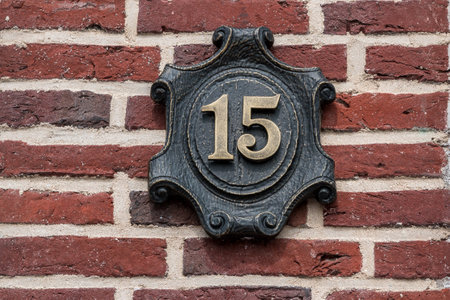Introduction to Cunning Folk Traditions
The concept of cunning folk is deeply woven into the fabric of British folklore, with roots stretching back to the medieval period and even earlier. Traditionally, cunning folk were individuals who possessed specialised knowledge of herbal remedies, charms, divination, and protective magic. They served as healers, advisers, and problem-solvers for their local communities, offering practical solutions to everyday troubles—from curing ailments to resolving disputes or guarding against witchcraft. Their practices were shaped by a blend of folk wisdom, Christian beliefs, and pre-Christian customs, reflecting the unique cultural landscape of rural Britain. As respected figures on the fringes of formal authority, cunning folk bridged the gap between the ordinary and the mystical, using their skills to address both physical and spiritual needs. This historical legacy provides a rich foundation for understanding how these traditions might adapt and persist within modern urban environments.
Urbanisation and the Changing Landscape
The rapid urbanisation of Britain during the 18th and 19th centuries dramatically altered not only the physical landscape but also the fabric of social and cultural life. As people migrated from rural villages to burgeoning industrial cities like Manchester, Birmingham, and London, traditional folk practices—once deeply rooted in countryside customs—faced both challenges and new opportunities for adaptation.
In the rural past, cunning folk were integral community members: neighbours who provided herbal remedies, divination, or protection against witchcraft, all within a context of shared local history. The shift to city life meant that these practitioners encountered a much more diverse population and a faster pace of life. The anonymity and density of urban settings necessitated changes in how cunning folk operated and engaged with their clientele.
The following table outlines some key contrasts between rural and urban contexts for cunning folk practice:
| Rural Setting | Urban Setting | |
|---|---|---|
| Client Relationships | Personal, often long-standing | Transactional, more anonymous |
| Knowledge Transmission | Oral tradition within families/communities | Printed pamphlets, advertisements, wider reach |
| Services Offered | Herbalism, charms, local spirits | Diversified practices including spiritualism and occult sciences |
| Legal/Social Scrutiny | Community monitoring; informal justice | Greater risk of legal prosecution; more media attention |
| Cultural Context | Tied to agricultural cycles and local folklore | Influenced by cosmopolitan ideas; exposure to new beliefs |
This transformation was not merely about geography. Urban environments forced cunning folk to reinterpret their roles: they became adaptable service providers rather than fixed community figures. The influx of different cultures into British cities brought fresh influences—spiritualism from America, esoteric philosophies from Europe—which mingled with indigenous traditions. Thus, urbanisation catalysed both the preservation and reinvention of folk practices, ensuring their survival in a rapidly changing world.

3. Adapting Practices for City Life
Cunning folk, originally rooted in rural communities, faced significant challenges when their practices encountered the unique pace and pressures of city life. The bustling urban environment, marked by dense populations, diverse cultures, and rapid change, required them to reassess both the form and function of their craft. Traditional rituals, which often relied on quiet landscapes or specific natural materials, needed to be reimagined. For example, urban cunning folk might substitute hard-to-find herbs with common market produce or use everyday household items in place of rural talismans. This flexibility was not simply practical but essential for maintaining relevance among city dwellers who lacked access to fields and forests.
In addition to altering their tools, cunning folk modified their approaches to suit a clientele living under very different circumstances. The concerns brought by city living—ranging from workplace disputes to issues of anonymity and privacy—demanded new solutions. Consultations that once took place at home or outdoors often moved into discreet corners of pubs, rented rooms above shops, or even via written correspondence through the post. By doing so, cunning folk preserved confidentiality for their clients in the close quarters of urban life.
Moreover, these adaptions extended beyond the material: the rituals themselves became shorter and more symbolic, recognising that time was a luxury many urbanites could not afford. Instead of lengthy ceremonies, quick charms or concise written spells gained popularity. In this way, cunning folk demonstrated an ongoing experimental spirit—blending traditional wisdom with pragmatic adaptation—proving that magical practice could survive and even thrive amid the brick and bustle of British cities.
4. Community and Networks in Modern Cities
In the urban landscapes of Britain, contemporary cunning folk have found innovative ways to embed themselves within local neighbourhoods and social networks. Unlike their rural counterparts, whose influence often extended through generations of familial connections, modern city-based practitioners operate in a vastly more diverse and transient environment. This shift has required new strategies for engagement, support, and visibility.
Modern cunning folk frequently act as informal community advisors, blending traditional knowledge with practical solutions tailored to city life. They may be approached for guidance on personal matters, health concerns, or even navigating the complexities of urban bureaucracy. Their ability to listen and offer grounded advice helps foster a sense of trust and belonging among residents who may otherwise feel disconnected from their surroundings.
Urban cunning folk also participate actively in local support systems. Whether through involvement in mutual aid groups, hosting workshops at community centres, or maintaining an open-door policy in their own homes or studios, these individuals become nodes in a wider network of care. The table below illustrates some common roles played by cunning folk in city settings:
| Role | Description | Urban Example |
|---|---|---|
| Community Advisor | Offers guidance on personal and spiritual issues | Neighbourhood drop-in sessions for advice |
| Herbalist | Provides natural remedies and wellness tips | Local markets selling herbal blends |
| Mediator | Assists in resolving disputes within the community | Mediation at tenants’ meetings or street associations |
| Educator | Shares knowledge about folklore and tradition | Workshops at libraries or community halls |
| Network Connector | Links people to resources or like-minded groups | Organising social gatherings or online forums |
Cunning folk in cities are also keenly aware of the importance of inclusivity and adaptability. British urban environments are typically multicultural, so practitioners often draw upon a variety of traditions to resonate with their communities. This openness not only broadens their appeal but also reinforces the idea that folk wisdom is a living, evolving force—well-suited to the shifting landscape of city life.
The digital age has further expanded the reach of urban cunning folk. Online platforms enable them to form virtual support networks that transcend geographic boundaries while still nurturing local connections. These digital spaces facilitate collaboration between practitioners, sharing of resources, and rapid response to community needs—whether it’s emotional support after a local event or collective action during times of crisis.
This blend of tradition and modernity allows cunning folk to remain relevant within Britain’s ever-changing cities. By rooting themselves in both physical and virtual communities, they offer continuity, connection, and comfort—qualities that are increasingly valued amid the hustle and anonymity of urban life.
5. Challenges and Resilience
The journey of cunning folk within urban environments is far from straightforward. One of the primary obstacles encountered is widespread scepticism. In modern British cities, where rationalism and technology dominate daily life, practices rooted in folklore are often dismissed as mere superstition. Cunning folk must navigate public doubt, sometimes choosing to work discreetly or adapt their language to better connect with contemporary clients who may be unfamiliar with traditional terminology or wary of anything perceived as ‘unscientific’.
Legal frameworks also present significant challenges. The UK’s laws regarding alternative healing, spiritual services, and the use of certain herbs or materials can be complex and occasionally restrictive. Urban cunning folk must remain vigilant about regulations—such as the Consumer Protection from Unfair Trading Regulations 2008—and ensure that their practices are transparent, ethical, and above board. This legal awareness not only protects practitioners but also helps build trust with an increasingly discerning urban clientele.
Beyond external pressures, the relentless pace and stress of city life pose further difficulties. The noise, lack of green spaces, and general disconnect from nature can make it harder for cunning folk to access the resources and quietude traditionally associated with their craft. Yet, this very challenge has spurred innovation: many have developed new methods for gathering materials (such as forming networks with local gardeners) or have integrated mindfulness and wellbeing techniques that resonate strongly in today’s wellness-focused urban culture.
Despite these hurdles, resilience is a defining trait among urban cunning folk. By drawing on centuries-old traditions while embracing adaptation, they demonstrate that these practices remain relevant—even vital—in contemporary society. Their ability to respond to changing social attitudes, navigate legal complexities, and withstand the pressures of city living speaks to the enduring power of folk wisdom in a modern British context.
6. Looking Forward: Urban Folk Magic Today
As British cities continue to change, so too does the role of cunning folk in urban environments. In recent years, there has been a notable resurgence of interest in folk magic and traditional practices, often fuelled by digital platforms and online communities. Social media groups, podcasts, and blogs allow urban residents to exchange knowledge, share experiences, and adapt old customs to new city realities. This digitalisation means that practices once passed down quietly through generations are now accessible to anyone with an internet connection.
Emerging Trends in Modern Urban Magic
Today’s urban cunning folk blend tradition with innovation. Many practitioners draw upon local history and folklore while adapting their methods to suit high-density living and fast-paced lifestyles. For instance, city dwellers might use kitchen herbs from window boxes or repurpose everyday objects for protective charms. There is also a growing emphasis on community well-being—urban cunning folk often address anxieties about modern life, such as job insecurity or housing stress, with rituals designed for collective resilience rather than individual healing alone.
The Impact of Digital Spaces
Digitalisation has fundamentally transformed how folk magic is learned and practised. Online workshops, virtual meet-ups, and resource-sharing platforms foster a sense of belonging among those who may feel isolated in sprawling urban settings. These spaces allow urban practitioners to connect not just locally but across the UK and beyond, facilitating an exchange of ideas that keeps the tradition vibrant and responsive to contemporary needs.
Future Prospects for Urban Cunning Folk
Looking ahead, the future of cunning folk in Britain’s cities seems promising. As urban populations grow ever more diverse, the practice will likely continue to evolve—absorbing influences from different cultural backgrounds while retaining its core focus on practical problem-solving and community support. The adaptability that defines cunning folk historically is still their greatest asset today; whether in bustling metropolises or emerging digital commons, they remain attuned to the changing rhythms of urban life.
In summary, while the tools and context may shift, the essential spirit of urban folk magic endures: pragmatic, adaptive, and deeply rooted in helping people navigate the complexities of city living. By embracing both heritage and innovation, modern cunning folk ensure their relevance in Britain’s ever-evolving urban landscape.

